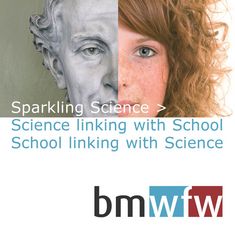McKioto
Biocultural diversity, climate relevance and health impacts of young people´s eating habits In the McKioto project students from two year 8 classes in Viennese schools (age range 13-15), under the guidance of academics, investigate their nutritional behaviour and that of other young people in their schools.
They identify places and times of consumption, the biological diversity of raw materials, the type and number of meals and drinks, as well as the cultural context influencing nutritional behaviour. The students calculate the “climate impact” of their nutritional behaviour, assess the effects of their nutritional behaviour on their health and develop alternatives for action for those areas of eating behaviour that were identified as unsustainable or unhealthy. The results are communicated by the students to their peers using appropriate methods (e.g., videos, Web 2.0). The project uses empirical social research methods (e.g. diaries, questionnaires and focus groups), methods for collecting dietary information (photo documentation), as well as social ecological methods in the area of sustainable science (e.g. product carbon footprint). The methods are adapted to what is being taught in close cooperation with students and teachers. The students not only collect empirical data, but also analyse and interpret it. They also make a link between the results and their own reality as well as debates in society about sustainability. It is expected that the involvement of young people in the research process not only provides new insight into the relevance of students’ eating behaviour on climate and health, but also allows the students to make a better connection with the methods and results of scientific research. As well as the research results being presented at scientific conferences and in scientific journals, the young people will also communicate them in their social environment by means of participatory videos.
Prospective teachers (students from the University of Teacher Education) are also involved in the research process to give them the opportunity to acquire direct research experience early on in their training and become familiar with the work undertaken in research-education cooperation arrangements as an opportunity for innovative forms of learning
News, videos, photo-impressions, articles & more
Please visit the German version of the McKioto Website for more materials and the latest news.
Contact
Project Leader: Vogl Reinhard Christian Coordinator: Heidemarie Pirker
Partners
Scientific Co-operation Partners Research Institute of Organic Agriculture FiBL / Website Pädagogische Hochschule Wien / Website Partners from Economy & Society gutessen Consulting / Website Participating Schools Grammar school Rahlgasse, Wien 6. / Website PH Wien, Praxis Mittelschule / Website

